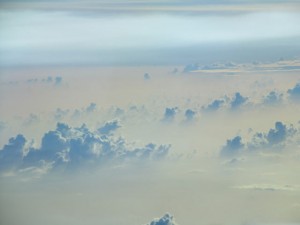NSU Newsroom
SharkBytes
Horizons
This version of NSU News has been archived as of February 28, 2019. To search through archived articles, visit nova.edu/search. To access the new version of NSU News, visit news.nova.edu.
This version of SharkBytes has been archived as of February 28, 2019. To search through archived articles, visit nova.edu/search. To access the new version of SharkBytes, visit sharkbytes.nova.edu.
Tiny Specks, Big Effects—Dust Out of Africa, Nov. 17
The Farquhar College of Arts and Sciences Division of Math, Science, and Technology will continue the Climate-Sustainability Lecture Series with “Tiny Specks, Big Effects.” Presented by Eugene A. Shinn, Ph.D., courtesy professor at the University of South Florida’s College of Marine Science, this presentation will take place on Nov. 17 from 4:30 – 5:30 p.m. in the Mailman-Hollywood Building, second-floor auditorium.
 Despite their tiny sizes (nanometer to micrometer), dust particles have big effects on global climate, human health, and ecosystem balance. In South Florida and the Caribbean, African dust is frequently found in the air, clouds, and soil through transatlantic transport, sometimes in huge amounts. African dust storms serve as umbrellas in reducing sunlight and suppression of sea-surface temperatures. Dust storms may also be directly related to hurricane activity.
Despite their tiny sizes (nanometer to micrometer), dust particles have big effects on global climate, human health, and ecosystem balance. In South Florida and the Caribbean, African dust is frequently found in the air, clouds, and soil through transatlantic transport, sometimes in huge amounts. African dust storms serve as umbrellas in reducing sunlight and suppression of sea-surface temperatures. Dust storms may also be directly related to hurricane activity.
Although transport has occurred for the past million years, dust today contains pesticides and other potentially toxic chemicals that are new to the planet and potentially harmful to humans. Also, iron transported in dust can stimulate red tide blooms in the Gulf of Mexico. In this presentation, Shinn will discuss the various effects of dust on Earth’s environment.
For more information, contact Song Gao, Ph.D.